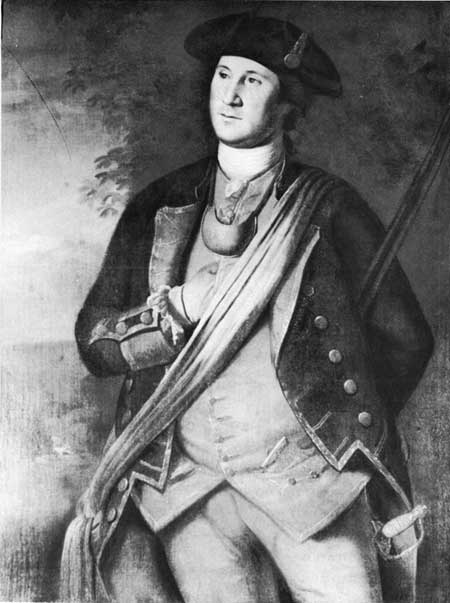|
GEORGE WASHINGTON BIRTHPLACE National Monument |
 |

George Washington, colonel of the Virginia militia
at the age of 40.
From a painting by Charles Willson Peale.
Courtesy, Washington and Lee University.
GEORGE WASHINGTON
". . . His integrity was most pure, his justice the most inflexible I have ever known, no motives . . . of friendship or hatred being able to bias his decision. He was, indeed, in every sense of the words, a wise, a good, and a great man . . . His heart was not warm in its affections; but he exactly calculated every man's value and gave him a solid esteem proportioned to it . . . Although in the circle of his friends . . . he took a free share in conversation, his colloquial talents were not above mediocrity, possessing neither copiousness of ideas, nor fluency of words . . . Yet he wrote readily, rather diffusely, in an easy and correct style . . . On the whole, his character was, in its mass, perfect, in nothing bad, in few points indifferent; and it may truly be said, that never did nature and fortune combine more perfectly to make a man great, and to place him in the same constellation with whatever worthies have merited from man an everlasting remembrance. For his was the singular destiny and merit, of leading the armies of his country successfully through an arduous war, for the establishment of its independence; of conducting its councils through the birth of a government, new in its forms and principles, until it had settled down into a quiet and orderly train; and of scrupulously obeying the laws through the whole of his career, civil and military, of which the history of the world furnishes no other example . . . "
THOMAS JEFFERSON in a letter to Dr.
Walter Jones, January 2, 1814, more
than 14 years after Washington's death.

|
|
Last Modified: Mon, Jan 20 2003 10:00:00 pm PDT |


